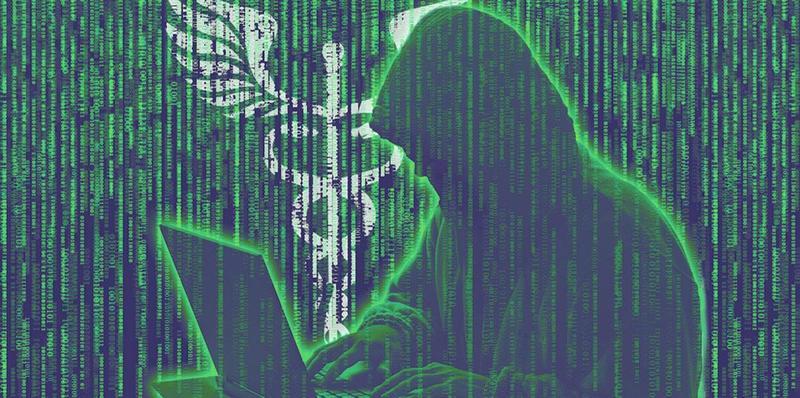Health Hackers: the Patients Taking Medical Innovation into their Own Hands
Health Hackers: the Patients Taking Medical Innovation into their Own Hands

Tired of waiting for a monitor for his diabetes, Tim Omer made his own. He is one of a growing number of patients circumventing medical companies in favour of a homemade healthcare revolution.
Tim Omer is a 31-year-old diabetic. Rolling up his sleeve, he reveals a small box, about half the size of a cigarette packet, taped to his upper arm. From the box, a sensor runs under his skin, delivering a readout of his blood glucose level to his mobile phone.
This is something to which few Type 1 diabetics in Britain have access – the monitors cost around £4,000 a year to buy and maintain and are too expensive for the NHS.
But Omer is no ordinary patient. He is a citizen hacker. Tired of waiting for the pharmaceutical and medical device companies to come up with new, affordable ways to improve the lives of diabetic patients, he has taken matters into his own hands.
A self-confessed geek, he bought an old continuous glucose monitor (CGM) from the internet and used his skills as an IT specialist to re-engineer it so that it communicates, via a self-built Tic Tac box receiver he keeps in his pocket, with his mobile phone and his smartwatch – something even the full-price version will not do. The total annual cost is about £1,000. With a couple of taps on the screen, his blood glucose level is displayed as a graph.
“I now have more information about my condition, so I better understand what I am doing. I feel more in control – and that is a massive improvement,” he says.
When people talk about innovation in healthcare, they have in mind a new malaria vaccine or a cure for Alzheimer’s disease. But these breakthroughs, despite the continued investment of hundreds of millions of pounds in research and development, are increasingly rare. The big gains in the future are likely to involve adaptations of existing technology such as mobile phones to enable the delivery of new forms of care in new ways by new players.
At the same time, the pressure on resources means patients must do more for themselves. Many patients like Omer want more involvement. The citizen hacker movement has developed in response to what they see as the slow pace of development, the lacklustre attitude of commercial companies and the heavy-handed approach of the regulators.
Citizen hackers have appeared on both sides of the Atlantic, working on improvements to existing aids for sick and disabled people. A recent article in the Washington Post described how technologically savvy patients have tweaked hearing aids so they play music, used 3D printers to make their own prosthetics and improved breast pumps for new mothers. These ideas emerged not from scientists in research labs, but from patients at the grassroots who are actually using the devices they have developed.
People with diabetes have adopted a rallying cry — #wearenotwaiting — signalling their impatience to find new solutions and spread the word to other users. Omer, who worked in the IT department of a major entertainment company for nine years and is now a freelance consultant, built his app in two months. Type 1 diabetes is particularly ripe for healthcare innovation, since information is so vital to its management and the equipment used is basic — prick the finger, put a drop of blood on a testing strip, measure the glucose level and inject insulin.
“Diabetes is all about managing your data – on medication, food and blood glucose,” says Omer. “Current tools are not up to the job and I struggle to keep up. We need help.” His next goal is to obtain an automatic calculation of the amount of insulin he needs, based on his glucose level and other factors, as a step towards creating an artificial pancreas. He has teamed up with the charity Great Britain Diabetes Online Community to bring his findings to a wider audience.
“My aim is to publish my work, and others’, so as many people as possible can benefit. If you try to commercialise , you run up against all sorts of regulatory barriers,” he says.
This should sound alarm bells. Regulatory barriers are there for a reason. Diabetes is a potentially life-threatening condition and patients come to rely on the devices they use, which must work reliably and predictably. If modified devices were used before going through a rigorous testing and approval process, they could put patients’ health at serious risk.
On the other hand, the frustration of diabetics such as Omer at the failure of major companies to develop better, cheaper, more accessible devices is easy to understand. We can’t ignore the growing demand for better care from diabetics — and others — who are frustrated at the slow pace of progress. And it would be foolish to squander the expertise on offer from patients with a sophisticated understanding of technology.
NHS England has recognised this by providing limited support for regular NHS Hack Days, which bring together people with problems and IT experts in an attempt to find digital solutions (although they don’t admit genuine hackers such as Omer).
But we need to go further. We must find a way to harness the talent that is out there and the desire of patients to become involved in their own care while protecting them from unregulated experimentation. It may be that, in this way, we can sow the seeds of the next healthcare revolution.
By Ara Darzi/The Guardian
Be the first to post a message!